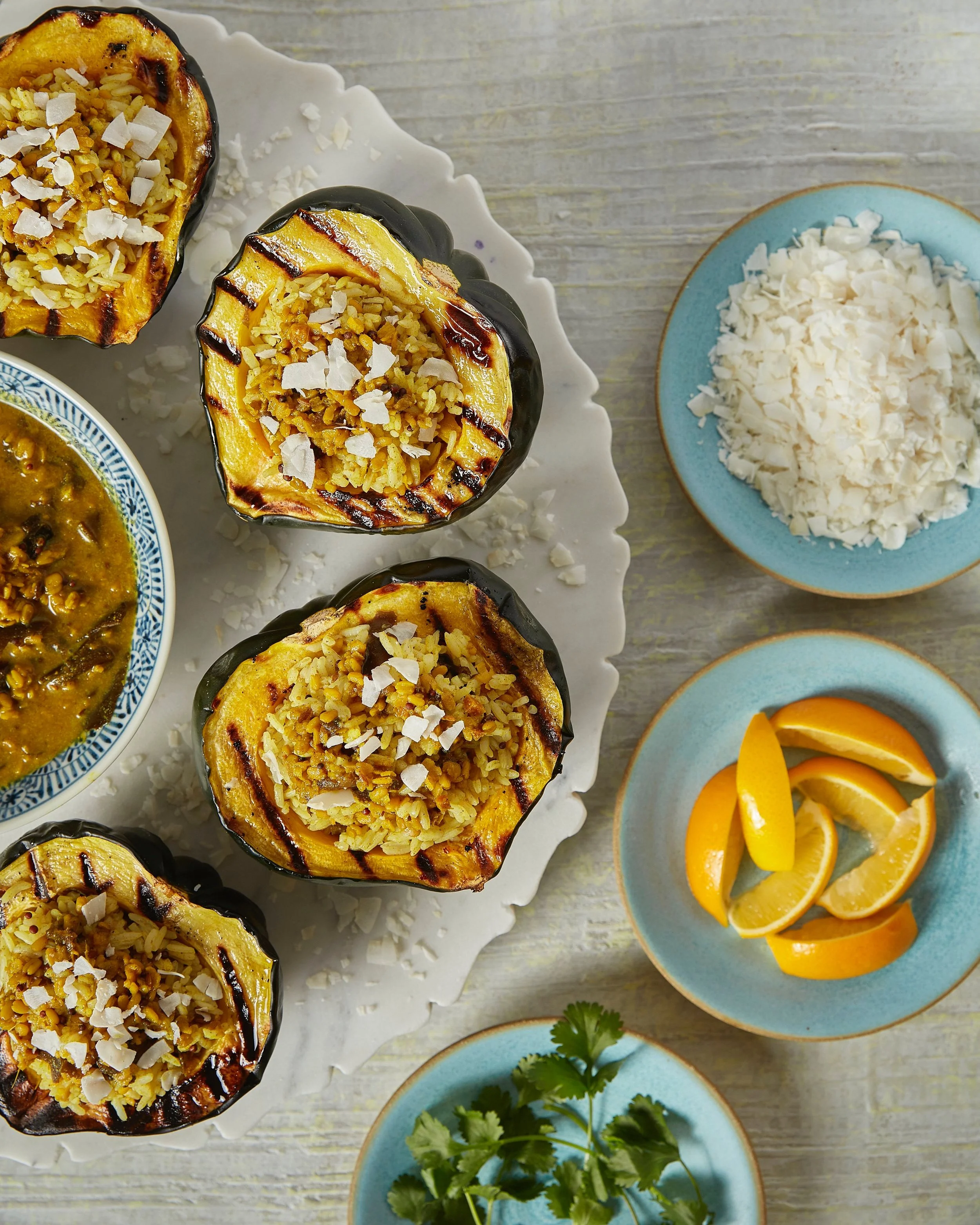Our Daily Bread
Anthony Ambeliotis of Mediterra Bakehouse shares some of his extensive knowledge about breadmaking and expansive joy in the process and results thereof.
“The smell of good bread baking, like the sound of lightly flowing water, is indescribable in its evocation of innocence and delight.” –– M.F.K. Fisher
In 2018, archeologists in Jordan discovered the charred remains of what they believed to be a 14,000-year-old piece of bread in an ancient hearth, upending the wisdom that the practice of baking macerated grain, water, and yeast was a still-spry 10,000 years of age. Long-held assumptions about the nexus of baking and agriculture (also known as the origin point of what would eventually evolve into our modern-day torrent of Instagram food pics) was, in fact, incorrect to the tune of 4,000 years. Baking wild grain came first and agriculture second. It's safe to say that our relationship with bread has been a kind of waltz; it goes where we go. From earthen hornos charged with embers to the recent backyard pizza-oven vogue, making bread in some dazzling form or another is in our blood.
This is especially true of Anthony Ambeliotis of the Mediterra Bakehouse, an enterprise founded in Pittsburgh and expanded to operations in Coolidge, AZ. Both locations serve restaurant and grocery store clients, most notably Whole Foods. The expression of making bread may be ubiquitous among an infinite number of cultures, but the transition of knowledge from generations is key to its survival.
"Food is pretty much all my family knows and all my family, at least in this country, has ever done," says Anthony, whose father, Nick Ambeliotis, started Mediterra in 2002.
His father's family immigrated from Greece to Warren, OH, where they owned and operated small grocery stores and butcher shops. After college, Nick would re-envision the stores as specialty food shops, a shift that would earn him accolades as one of the country's top purveyors of specialized foods and ingredients. After a stint in food importing and wholesaling, he turned his attention to bread; but first came the oven, which Anthony helped build as a teenager in the spot that would become Mediterra.
"We built the oven with a fourth-generation master oven builder from Austria," Anthony says. "It was my first real exposure to a real artisan process. It was a master class in using your senses to craft something special. There were no instructions to build this oven. He just used his senses. Twenty years later, we're still using it." As Anthony tells it, the Austrian required a glass of champagne each work day to keep things light and effervescent.
Anthony would work in the bakery during breaks from college, where he studied to be an accountant. As an admitted "perfectionist and sports guy," the attention to detail and team atmosphere connected him with the bakery.
"I got an accounting job, which was the worst experience of my life. I knew that I was a craftsman. I wanted to create with my hands, which was my calling to the bakery. I went full-time at the bakery in 2009 and would eventually earn my spot as production manager."
Inspiration alone was not enough. Anthony read and studied every breadmaking book he could find, which continues to this day. And as with anything handcrafted, classes, mentorship, and comraderies among the baking world would build into a lasting network of others like him linked by an obsession to explore the art of breadmaking further. Teaching breadmaking is an essential commitment to this art form: passing along wisdom tempered by years of trial and error, success, tradition, and innovation keeps it alive, and helps create a community of knowledgeable aficionados.
"You have to train and trust your senses" is Anthony's first piece of advice for anyone with a yen to try their hand at the dough.
"Forget the formula. Forget the recipe. You must figure out for yourself what properly fermented dough should feel, look like, smell like, and taste like. The most important thing is mastering your senses as much as you can; less important is following a scripted recipe or timeline," Anthony says.
Applying this advice may be more challenging than it seems when taking an introductory baking class. Still, understanding the peculiarities of the ingredient, equipment, and any external variables that inform the final product are essential to good breadmaking.
"Mixing to proper gluten development is critical. Every mixer is different, and every bag of flour is different; not all flour can take the same amount of water, for example. You might have two identical bags of flour, but they might be from two different grain batches. The grain milled in one bag might have a higher tolerance for hydration from another bag. Because there are many changing variables, you must trust yourself to say that this mix can take more water. It's those kinds of instincts to develop. This is not something you develop with one class, but if you understand and learn to trust yourself, then you will begin to see and feel those subtle differences that are so important."
This attention to detail for all parts of the breadmaking process would lead the Ambeliotis family to begin, in 2015, to grow its own grain on 35 acres in Coolidge, AZ. The farming operation employs fully sustainable and organic growing methods of heritage grains milled with precision with a natural barre granite stone mill. They grow four main varietals: Red Fife, white Sonoran wheat, which is indigenous to the Southwest and commonly used for tortillas; Tibetan purple barley, which is excellent for pastries; and Blue Beard Durum, a varietal of unaltered durum wheat.
"It's a way to control the whole process, not just for consistency, but more for food integrity and creating a vertical food system. I don't want to produce something I wouldn't feel comfortable eating. It's about making something you can stand behind and making bread healthier by including more whole grains."
The Ambeliotis family’s commitment and passion for creating the best bread for the largest audience possible has turned out to be good business, with growing demand for their well-conceived and well-crafted product. But the motivation to nourish others with the most ancient foods has as much to do with Anthony's instincts about breadmaking itself.
"I've never had bread as good as that," says Anthony about biting into the first piece of bread, sesame semolina, from the oven he helped to build. "It was such an amazing, fulfilling feeling. It was the beginning of the journey."
Breads and pastries from the Mediterra Bakehouse can be found at Whole Foods Markets across the US and many places throughout Pennsylvania. A variety of their products, including bags of their heritage grain flour, can be purchased at their two beloved Mediterra Café locations in Sewickley and Mount Lebanon. You can find Mediterra Bakehouse pastries at La Prima Espresso Company, Convive Coffee, and Coffee Tree Roasters. Breads are available at East End Food Co-op, restaurants like The Speckled Egg and Point Brugge, and Harvie online grocery service.
STORY BY GABE GOMEZ / PHOTOGRAPHY BY LAURA PETRILLA / SHOT ON LOCATION AT MEDITERRA BAKEHOUSE
12 Month - 6 issue subscription


















Indulge in the taste spring with this delicious Cherry Galette